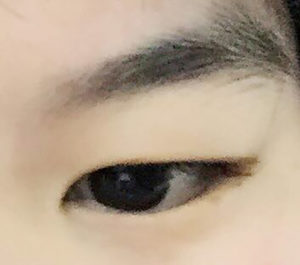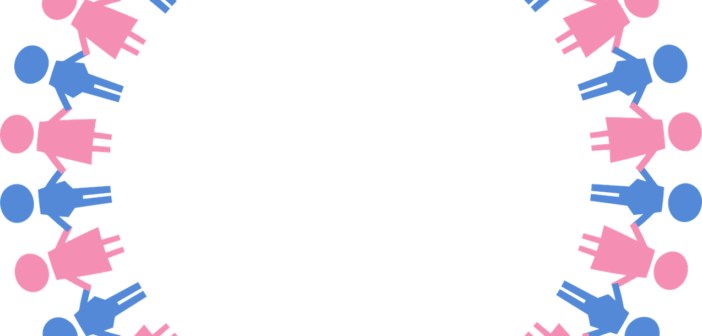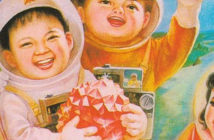Questions involving gender assignment have been asked for decades, and continue to spark a mass of controversial debates across all sectors of society. Today’s millennials seem more willing to understand each other’s differences, especially those involving sexual orientation, gender assignment, gender roles and homosexuality. Two students associated with the Beijing LGBT Center share their own insights on the subject.
 Shiyu Zhang, Grade 12 student, discusses the change in discourse over the decades
Shiyu Zhang, Grade 12 student, discusses the change in discourse over the decades
Yes
For a long time, the biggest difference between human males and females has been believed to be established through biology. We use different changing rooms and bathrooms in response to this divergence in biological functions and physical appearances. In fact, the separate categories of male and female were indeed first created to reflect the different traits in the body among these two sexes: women are born with the capability to bear children, while men are born with the better physical strength to fight and work. These inherently recognized disparities served to form the very first gender roles in society: women deal with domestic work while men support and protect the family.
Due to gradual infiltration in social hierarchy, gender roles have changed over time. Many figures in history emerged to break the fixed impression that women were inferior to men. Take Queen Elizabeth I of England as an example, who did not marry her entire life; instead devoting herself to promoting economic and literary revival within the nation. Rosie the Riveter, also a notable icon, marked the shift of women’s position from homemakers to economically-independent factory workers. This change in perspective can be seen not only from everyday life but also from the field of science. Masters and Johnson, as well as Alfred Kinsey, who are distinguishable scientists in the field of human sexuality, have all published studies indicating that men are not necessary for women to please themselves, and women can also be dominant in a relationship. This tide of feminism and pursuit for gender equality continued to flow and has become the primary vision for today’s society. More women choose to become engineers and to set foot in the field of business, which has previously been thought to be a man’s job.
The seemingly more fixed biological side has started to be reshaped in our ideas as well, totally breaking the confinement to a single gender. As transgender, intersex, and queer identity persons continue to become recognized in society, it has significantly altered the common notion that sex can only be assigned at birth. Many who used to feel ambivalent in their own body now have the right and chance to fit their soul into the most suitable frame. Moreover, in today’s more advanced society, reproduction has ceased to be the principal goal for humans in many places; therefore, the distinct “function” assigned to a single sex may not be as significant.
This huge leap in ideology surely did bring many minorities into light, but we must admit that there are still stereotypes remaining, generating fear among minorities. In my school, there are boys who still feel threatened by their girlfriends’ higher academic achievements. They will sometimes even preach to the girls, saying, “You are a woman so you should not have high grades or go to better schools than I do.” Similarly, boys are being called sissy if good at handicrafts; and “gay” is still always used to describe males that do not display the anticipated “coarseness” of men.
Despite the constraints, people now have the opportunity to choose. In a society no longer emphasizing conformity, the definition of gender, the believed unchangeable label on a person, is also challenged. People may still not understand sometimes, but at least we’re not in a passive position anymore. Gender roles are gradually evading one’s destiny of being “assigned” by an external force, and individuals no longer have to live up to others’ expectations.
Gender can be allocated, but others should not decide for an individual. Assigning one’s gender can be a process of learning true self; however, if one does not fit in any of the established definitions, then just be. One may need a gender identity to work, to socialize, but no one needs one to enjoy life and be happy.
 旅(Jen), Grade 12 student and activist for social equality, bases her conclusion on six hypotheses that she has developed based on the results of her own self designed survey in 2016.
旅(Jen), Grade 12 student and activist for social equality, bases her conclusion on six hypotheses that she has developed based on the results of her own self designed survey in 2016.
No
Gender
“My results showed that most female survey-takers held better attitudes towards homosexuality than the male survey-takers.” Jen continues by saying, “women are also a disadvantaged group in Chinese society, therefore it is probable that females have grown empathetic to other disadvantaged groups, such as homosexuals.”
Educational Background
“My results showed that survey-takers of higher educational backgrounds held distinctly better attitudes towards homosexuality than other survey-takers that did not have such education.” Jen believes that people with higher educational backgrounds have been able to “get in touch with more people and become part of a larger social [system]”, therefore they are more knowledgeable and understanding of differences in people. Jen goes on to say that those lacking education “are more likely to follow traditional ideas” instead of developing their own. “[Some people] are more willing to accept this knowledge even if they do not understand much. [They do] not have much knowledge, but very profound attitudes.”
Age
Jen strongly believes that there is a direct correlation between the age of a person and one’s attitude to and knowledge of homosexuality.
“My results showed that age and the knowledge and attitude of and towards homosexuality are very much inversely related.” Jen believes the reason is related to the time period survey-takers were born into. “[Post-] 1976 is known as the ‘Internet Generation.’ Because of these new forms of technology and easy access to information, people born after the 1980s are more tolerant [and accepting of]new concepts.”
Career
My results showed that the survey-takers who are employees of government enterprises held less positive attitudes towards homosexuality than the survey-takers who were employed by private enterprises. “This reason might be due to the conservative and [traditional culture]of government enterprises, while the private enterprises may be exposed to more diversity” and are more willing to accept people as they are.
Sexual Orientation and Gender Identity and Expression (SOGIE) Education
“My results showed that SOGIE Education casts a huge influence to the survey-takers’ attitude towards homosexuality. The survey-takers who have received SOGIE Education were 20% more knowledgeable and 45% more positive towards [views of the LGBTQ community]than the survey-takers who have not received SOGIE Education.”
Acquaintance
“My results show the survey-takers who are only acquainted with male homosexuals hold distinctly better attitudes towards male homosexuality than the survey-takers who are only acquainted with female homosexuals.” Jen believes this is because many people are more accepting of homosexual women than they are men. Therefore by having homosexual male friends, one’s overall attitude towards the LGBTQ community will become more positive. “People will be largely influenced by their acquaintances. When there are certain groups around them, their empathy for this group will largely increase or decrease.”
Jen concludes by stating that, though she believes she can be any gender, others have preconcieved notions about gender and sexuality, with older generations and those less exposed to diversity still assigning others gender expectations.

This article originally appeared on page 34-35 of beijingkids 2017 February Issue. Download the digital version here.




